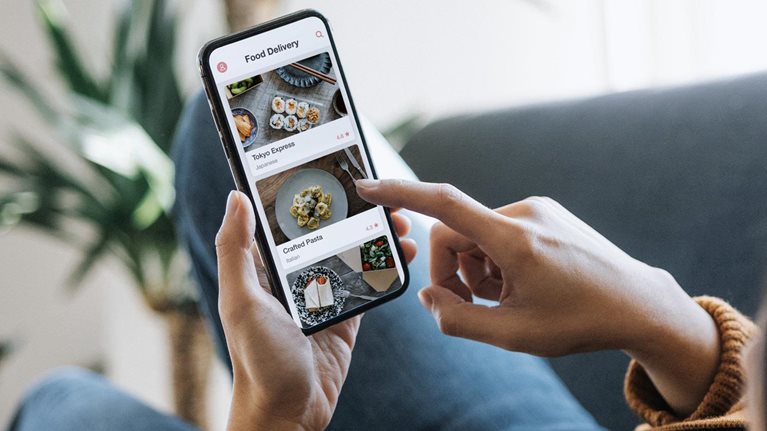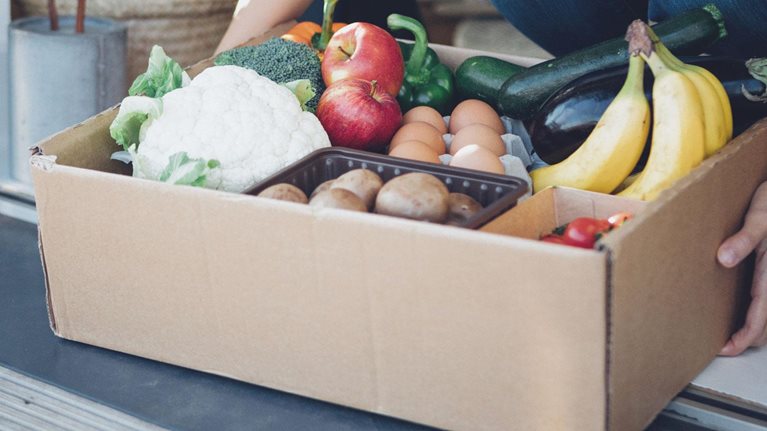This interview conducted on February 9, 2022.
Question: How do you view the trajectory and growth potential for instant grocery delivery?
Kağan Sümer: Every crisis spurs disruption and innovation. In the short term, the COVID-19 pandemic has accelerated instant grocery’s penetration. The question is, what will happen next?
Before the pandemic, people were slow to adopt online for two reasons: they wanted to touch the products before buying them, and they hated the long wait times for delivery. As we return to some sort of normalcy, I expect a transition from scheduled delivery to Q-commerce [quick commerce]. People will still want the convenience of online, but because they are no longer confined to their homes, they will want a model that offers a tactile experience and delivers immediately. This is Q-commerce, and it is exactly what we are doing at Gorillas.
Instant delivery is transforming the grocery industry. Our value proposition is perfect convenience—whatever you need, delivered immediately. This is a natural evolution of grocery, and I fundamentally believe this is the model of the future. If you draw an S-curve, Q-commerce is moving faster than any other industry.
Question: How do you expect the business model and competitive landscape to evolve?
Kağan Sümer: We envision this evolution taking place in three successive phases, each requiring a different focus for our business model. The first phase revolves around building a core platform that can deliver what the customer wants. Our current business model is focused on achieving operational excellence and efficiencies across our logistics platform and supply chain. This will be critical to gaining market share and access to limited capital.
Today’s capital markets, the recent supply chain crisis, labor shortages, and growing inflation are placing a huge amount of pressure on capital-intensive industries and technology companies. Therefore, I think in the second phase, over the next two to three years, we will have a race for capital in the Q-commerce industry, as investors become more selective and concentrate their funding into a smaller number of companies. The winners will be the ones that will achieve greater scale and drive better top-line and bottom-line performance—and therefore a better ROIC [return on invested capital]. These players will likely fuel market consolidation.
In the third phase, I expect more business model evolution in the industry, based on unique consumer data, installed platforms, logistics networks, and ecosystems.
Question: What is your vision for Gorillas?
Kağan Sümer: We will aim to reach 100 percent penetration, democratizing instant delivery, like Nike did with sports and Apple with iPhones. We believe that we could help our customers to consume fresh, healthy food; be the best version of themselves; and make their lives easier because they will no longer have to worry about their day-to-day shopping needs.
In the longer term, Gorillas’s business model will evolve. After establishing our platform and increasing our share of the market, we will likely develop our own unique assortment and brands with purpose—either by developing private-label products or by partnering with retailers or brands. Once we have the platform and the products, we will leverage our unique consumption data and enrich it with other data sources to provide the best personalized offers and service to customers. For example, connected monitoring devices like sleep rings and smart watches can help us predict what you need, and those products can be automatically ordered and immediately delivered to your door. At this point, we will have the infrastructure to create a society that “needs nothing.”

Navigating the headwinds: The State of Grocery Retail 2022: Europe
Question: What are the “unlocks” for your company to achieve this vision for the future?
Kağan Sümer: First, we need access to capital, which I spoke about earlier. We also need to continue developing the technology, which will improve our bottom line. Our technology serves us for now, but we have only scratched the surface. Today, we are a tech-enabled retailer—a company that uses technology to support its processes. We are in the process of transitioning into a tech company—a company that creates value for its ecosystem and stakeholders through the solutions it builds.
Question: How have you expanded your customer base and increased penetration?
Kağan Sümer: We have created a movement and momentum around our brand. It’s quite viral. Our enthusiastic customer base is not only the foundation for our top-line growth but is also, and more important, a community for change. We’ve found that our model has a universal appeal reflected in the breadth of our customer base. As an example, I recently delivered groceries to a hipster and a clergyman, both in one day.
When it comes to increasing penetration, we split the market into three segments. Our brand was embraced by the top 1 percent, the trendsetters—a community of very early adopters who don’t really care about price but want to be associated with the promise and ultraconvenience of the brand. Then there is the next 9 percent consisting of rapid followers; they want to follow the trendsetting 1 percent and change the industry. They are only a little more price sensitive. They care about the environment, the planet, and their own consumption. When we look at the data, we see that we have successfully captured these two groups.
Now we are at an inflection point. The last 90 percent of customers are more practical; they want lower prices and the right product selection. If we completely adapt our proposition to this 90 percent, the early adopters may decide that it’s no longer exclusive enough for them. We therefore need to find a way to reach this large segment now, and we will consider these types of trade-offs as we grow.
Question: How do you approach the increased regulation of the industry—for example, limits on the presence of dark stores in city centers or protections for flexible workers?
Kağan Sümer: We are 100 percent compliant with regulations. At the end of the day, regulations exist to protect the people our model serves: neighbors, customers, suppliers, and employees. In the short term, of course, our model will attract some regulatory attention. It has a huge potential impact on our everyday lives, and it should be pressure-tested by regulators and authorities. This is a good thing for the industry, and I believe it will promote a people-first approach for Q-commerce companies.
Question: What do you believe gives you a competitive advantage over more established retailers?
Kağan Sümer: We know we cannot match the purchasing power that traditional retailers have built up over the course of 60 years. However, the data-driven insights we generate through our platform are extremely valuable to CPG [consumer-packaged-goods] companies, and we can help both global brands and local suppliers gain visibility into customer trends and behaviors. At the same time, our scale opens the door to new revenue streams, such as retail media networks, that are extremely valuable and could therefore enable us to pursue innovative retail partnerships.
We are in a prime position to create new brands and even shape future product assortments. Just look at oat milk as an example of an amazing go-to-market strategy that exploded into a new category. The future of assortment is not yet defined, and we have the right people on our platform—the 10 percent who are trendsetters and rapid followers—to become the initial advocates of these products. In other words, we have the brand equity, the distribution channel, and the scale to accelerate brands and shape demand.
Question: What have you learned from the journey so far?
Kağan Sümer: In many ways, I built this company in a way that resembles my leadership style—bold, edgy, and authentic. But the next phase of Gorillas is about creating a sustainable business model. I realized that I needed to change myself to change the company, so I’ve been working with a coach and corporate psychologist to adapt myself to what the company needs for the next phase. We are reexamining every pillar of our operating model—strategy, process, structure, talent, and technology—and are working to build an organization that will stand the test of time.
On a personal level, this journey has been a humbling experience. It taught me that I cannot do everything on my own. I have never been afraid of failure; this mindset has been incredibly helpful as an entrepreneur to keep learning and experimenting, but it often made me feel like I could do anything. My biggest learning was that I need an ecosystem to set myself and the company up for success. You are only as big as your ecosystem and your relationships.

